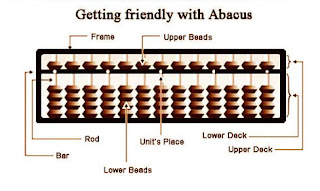Operating System
OPERATING SYSTEM
An Operating system is a program that acts as an interface between the user of a computer and computer hardware. The purpose of an operating system is to provide an environment in which user can execute programs in a convenient and efficient manner. It is the first program loaded into the computer's memory after the computer is switched on. Popular operating systems include MS-DOS, OS/2. Windows and UNIX. The operating system is an important component of the computer system, because it sets the standards for the application programs that run on it. All programs must be written in a manner, which is recognized by the operating system.
An Operating System is like a soul of a computer, Without an Operating System a computer considered as dead, It has no use.
An Operating system is a program that acts as an interface between the user of a computer and computer hardware. The purpose of an operating system is to provide an environment in which user can execute programs in a convenient and efficient manner. It is the first program loaded into the computer's memory after the computer is switched on. Popular operating systems include MS-DOS, OS/2. Windows and UNIX. The operating system is an important component of the computer system, because it sets the standards for the application programs that run on it. All programs must be written in a manner, which is recognized by the operating system.
An Operating System is like a soul of a computer, Without an Operating System a computer considered as dead, It has no use.
Functions of Operating System
1. Memory Management Function
- An Operating System manages the primary memory of the system.
- It allocates the memory, on the request of a process, which is being run at that time.
- It also keeps a check at a particular time, how many bytes of memory are in use and which process is using it.
- It also keeps track of what part of it is free.
- In case of a multi-user system, it decides on the priority basis, that which user will have access to memory and when.
- How much of it is used depends on the requirements.
2. Processor Management Function
- An Operating System also takes care of the processor.
- It allocates the processor to the user.
- In case of multi-user system, it allocates the processor time to different users as and when needed and in such a way that every user has a minimum waiting time.
3. Device Management Functions
- It keeps track of all the devices i.e. peripherals attached to the computer such as I/O devices etc.
- When needed, it allocates the devices in such a way that each can be efficiently to the user.
- It initiates the I/O operations and allocates them along with other devices to the user.
4. File Management Functions
- Writing and retrieving the information on from the secondary storage device is the function of an operating system.
- It follows a complete methodology for maintaining the files, so that different sets of information do not get mixed up and exactly the same set of information is supplied, which is required by the user.
In the next post we will discuss on
"Types of Operating Systems"
till then take care
see you soon.......

Comments
Post a Comment